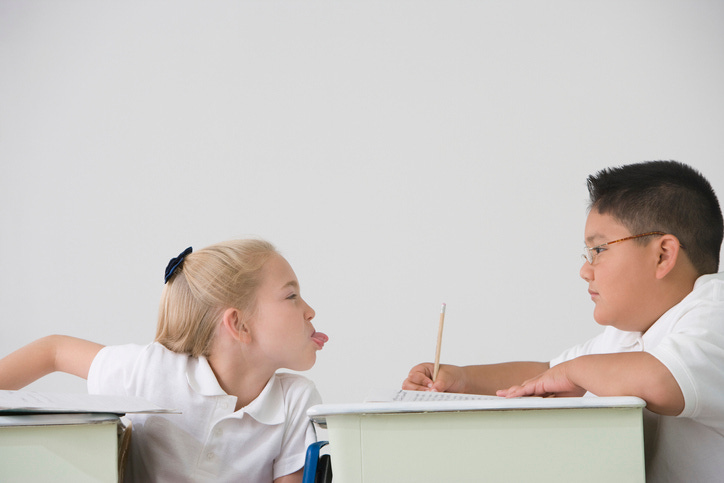Book Research Roundup: Diet Culture In The Classroom
Are schools teaching our kids fatphobia?
UPDATE: We’ve had to postpone the event below until February 2 because a bunch of us got Covid! Hope to see you then. This winter, man. (We are all vaccinated/boosted and doing okay.)
Heads up! If you enjoyed my recent podcast chat with Amee Severson, co-author of How To Raise an Intuitive Eater, get excited: I’ll be hanging out with Amee and their co-author Sumner Brooks for a virtual book talk tomorrow at 12pm PT/3pm ET. This is a free event, hosted by Village Books, register here to join us!
It’s time for your monthly book research roundup!
This month I’ve been working on a chapter on the ways diet culture and anti-fatness show up in our schools. Here’s a rundown of what I read while working on this chapter, which I think will be interesting to anyone with a child attending school—but also hopefully both interesting and useful to educators looking for tools to help in this work.
One important note before we start: I want to be clear, especially right now, when Omicron has made every conversation about schools feel so fraught, that I’m not shaming or blaming teachers, any more than I blame mothers (or fathers, and yes a dad version of this post is coming eventually). Teachers are people in the world, absorbing and internalizing biases just like the rest of us. And yes, because “role model” is in their job description, they have an obligation to reckon with and unpack those biases. But there is a lot about that job description that is unrealistic and unsustainable right now. And yet, so many teachers are still trying to do this work. Reporting this chapter involved so many great conversations with teachers who are calling out and eradicating weight stigma from their classrooms and curriculums. And that is encouraging and inspiring. So teachers, thank you and I see you!
My starting point for this chapter was the reporting I did for a 2020 piece for the New York Times Parenting section called “Are Schools Teaching Kids to Diet?”
And the answer is yes, in ways both official and unofficial.
(CW, as always, for frequent use of o-words and other stigmatizing language in all research papers and most media coverage of these issues. Take care of yourself!)
Informal Fatphobia Comes From Teachers
Teachers and students bring anti-fat bias into the classroom, as Nutter et al document in this excellent 2019 literature review. One key finding to keep you up at night: Teachers are more likely to assume that girls in larger bodies read at a lower level than thinner peers and that boys in larger bodies are worse at math.
This 2012 study of 162 physical education teachers found that they had lower expectations of their students in bigger bodies, in terms of both their physical abilities and social skills.
This 2013 analysis of data collected on kindergarteners found that a student’s weight had a bigger impact on a teacher’s assessment of their academic ability than their test scores. (I’m no fan of test scores but I think we can agree they are at least a somewhat closer measure of a child’s academic ability than body size!)
Stephanie McCullough Campbell, a psychology doctoral candidate studying educational psychology at the University of Wisconsin, has some excellent conference presentations on schools and weight bias, which can be found here (scroll down).
Cait O’Connor, an English teacher in Portchester, NY (and @justteachingela on Twitter and Instagram) has this excellent Teach Better post breaking down all the small ways anti-fat bias shows up in classrooms, and what to do instead.

Informal Fatphobia Comes From Kids
High body weight remains the number one reason that girls are bullied, and the second most common reason boys experience it.
When weight-based bullying is so likely to go unchecked in schools and at home, we teach fat kids that the solution to bullying is to change their body to be less of a target. We also teach them to be bullies, too: A 2004 Canadian study of 5,749 kids aged 11 to 16 found that those in larger bodies were more likely to be both victims and perpetrators of bullying. Here’s some more recent data.
Weight-based bullying at school — it should shock nobody to learn—increases kids’ risk of body dissatisfaction, disordered eating, and eating disorder symptoms.
Teachers, although they have a lot of work to do on their own biases, generally support interventions to reduce weight-based bullying pretty much across the board.
Formal Fatphobia comes from Dress Codes
Dress codes are racist, sexist and fatphobic, both in how they’re written and how they’re implemented.
Remember this 2016 story about the 9-year-old girl given in-school suspension because her shirt was too tight? Yeah. Her mom brought a replacement outfit to school and they vetoed that one too.
This Illinois school did the work and overhauled their dress code, though — great example for other schools to follow.
A Mississippi middle school made headlines last week after guidance counselors offered to distribute bras and shapewear to female students in a quest to improve their body image. Yes, you read that right.
Here’s Beauty Redefined on the shapewear saga. They are also always excellent on dress codes (and modesty lessons).

Formal Fatphobia comes from Curriculums
Here’s a fun history of the United States Department of Agriculture’s various food guides. Are you Generation Hassle-Free Daily Food Guide, Generation Food Wheel (raises hand!) or Generation Food Pyramid (before we all became MyPlaters, of course)?
Here’s an early debate on whether it’s helpful or harmful for schools to weigh kids and send their “BMI Report Cards” home. Spoiler! Harmful.
Indeed, this randomized clinical trial found that when schools send home BMI Report Cards, they cause harm, especially for kids in bigger bodies and don’t actually make anyone thinner.
Is it time to remove BMI screenings from school settings? Hell yes. Also yes. Still yes.
Here’s more evidence of the harm caused by schools’ ob*sity prevention programming, most of which is not evidence-based and “focuses on weight instead of healthy habits.”
Longterm dietary and physical activity interventions in schools also have no apparent impact on BMI. This one didn’t work either. Guys! It’s almost like diets don’t work!
Always listen to Maintenance Phase, especially on the history of the President’s Physical Fitness Test and Fat Camps, which I know are not school but feel very adjacent to this conversation.
(I would rather send my kids to No Body Talk Camp, thanks.)
What Parents and Educators Can Do
This study found that incorporating weight stigma education into pre-service teachers’ curriculums improved their awareness of and responses to weight-based bullying.
Here’s a podcast for teachers about weight-neutral schools. See also this episode on weight-neutral well-being and this one on weight-neutral food education!
I love (and refer back often!) to the advice that Gwen Kostal of Dietitians4Teachers gave us in this Burnt Toast Podcast episode on how to thoughtfully engage teachers on these issues.
And Cait O’Connor has a fantastic list of classroom-ready texts and other resources, for teachers looking to increase representations of size diversity in their classroom libraries and curriculums.
[Post-publication Note from Virginia: Christopher Pepper, another fantastic resource on these issues, reached out to let me know that “gym teacher” is an outdated term and it’s preferable to use “physical education” or PE teacher. My apologies for the mistake and thanks to Christopher for the heads up!! It’s been corrected above.]
ALSO
Intuitive Eating: I was on the Embodied Podcast this week talking about separating the act of eating from weight management.





I have worked SO hard on this with my kids, and felt really undermined when my preschooler came home one day, having had a lesson on "healthy eating", and told me all about the unhealthy foods we shouldn't eat. The school also monitors how they eat their lunch and won't let them eat their "treat" until everything else has been eaten. I'm hoping that my consistent work at home will win through, but I do feel frustrated. And I thought Grandma and her "naughty chocolates" where my main problem!
I've been thinking about diet culture and school a lot since my kid settled into kindergarten. Two things are currently concerning me: one is that there's a problematic level of enforcement of eating the vegetables and fruit that come in the school lunches. My kid doesn't like mushy vegetables, which the school vegetables are, and as a result he will often get the cheese sandwich alternative even to a lunch he otherwise likes because he doesn't want to eat the vegetables. And on the one day a week he gets home lunch, he has asked me to not send a sandwich because he is made to finish that before he can eat his granola bar, and he doesn't always have time. (We have compromised with 1/4 of a sandwich in addition to his [crunchy] vegetable slices and turkey pepperoni.)
The other thing is he has become aware of fatness as a disfavored category, and commented on it a few times, and I have to assume it's coming from school -- presumably from the other kids since I don't imagine his teacher explicitly calling anyone fat.
The former I feel like we might need to talk to his teacher about at some point, but it does feel like an uncomfortable level of telling her how to manage the classroom, and I don't know to what degree this is a formal policy and to what degree it's the initiative of the para who is the one enforcing this.
But boy, if they sent home a BMI report card the entire school district management would be hearing from me.